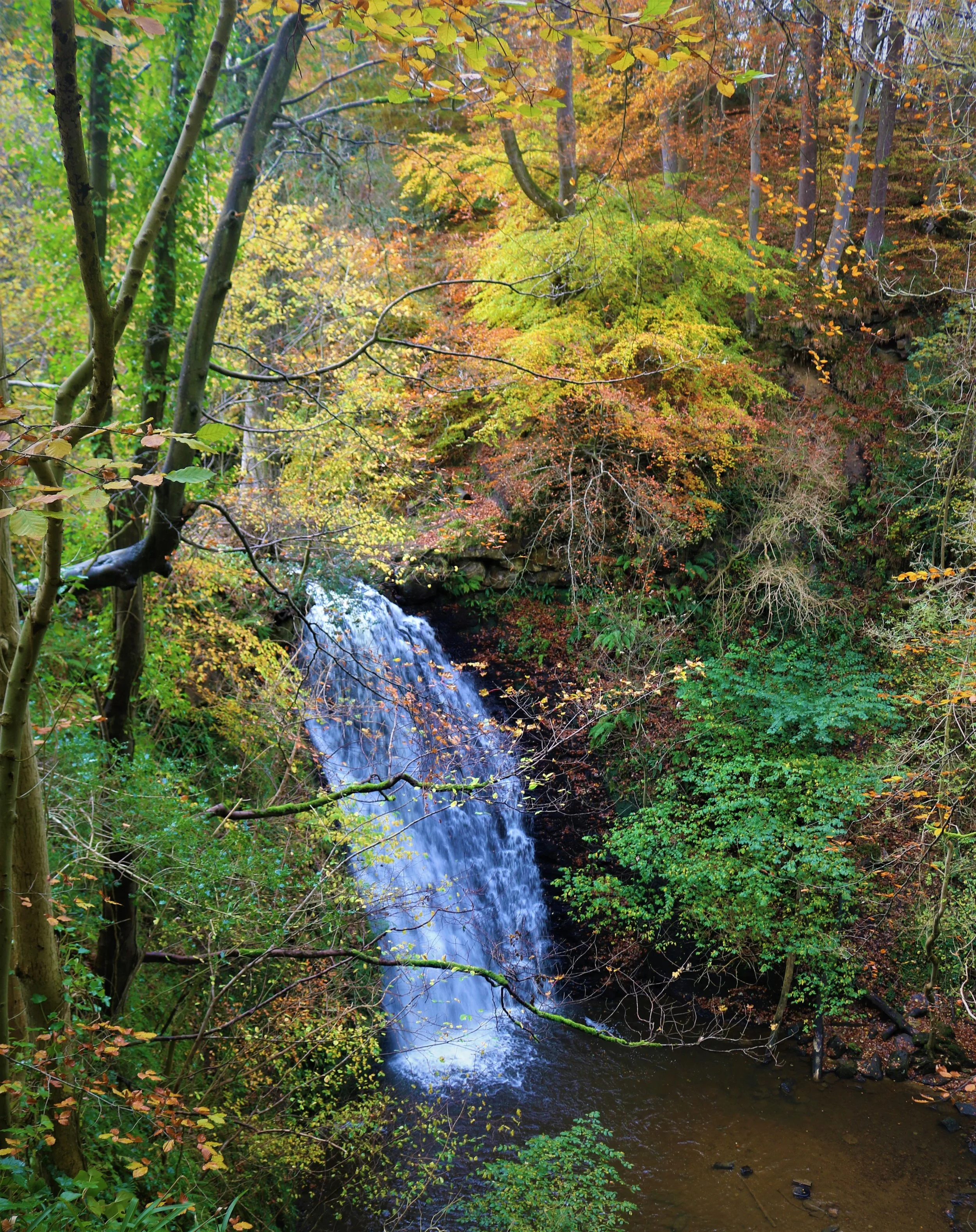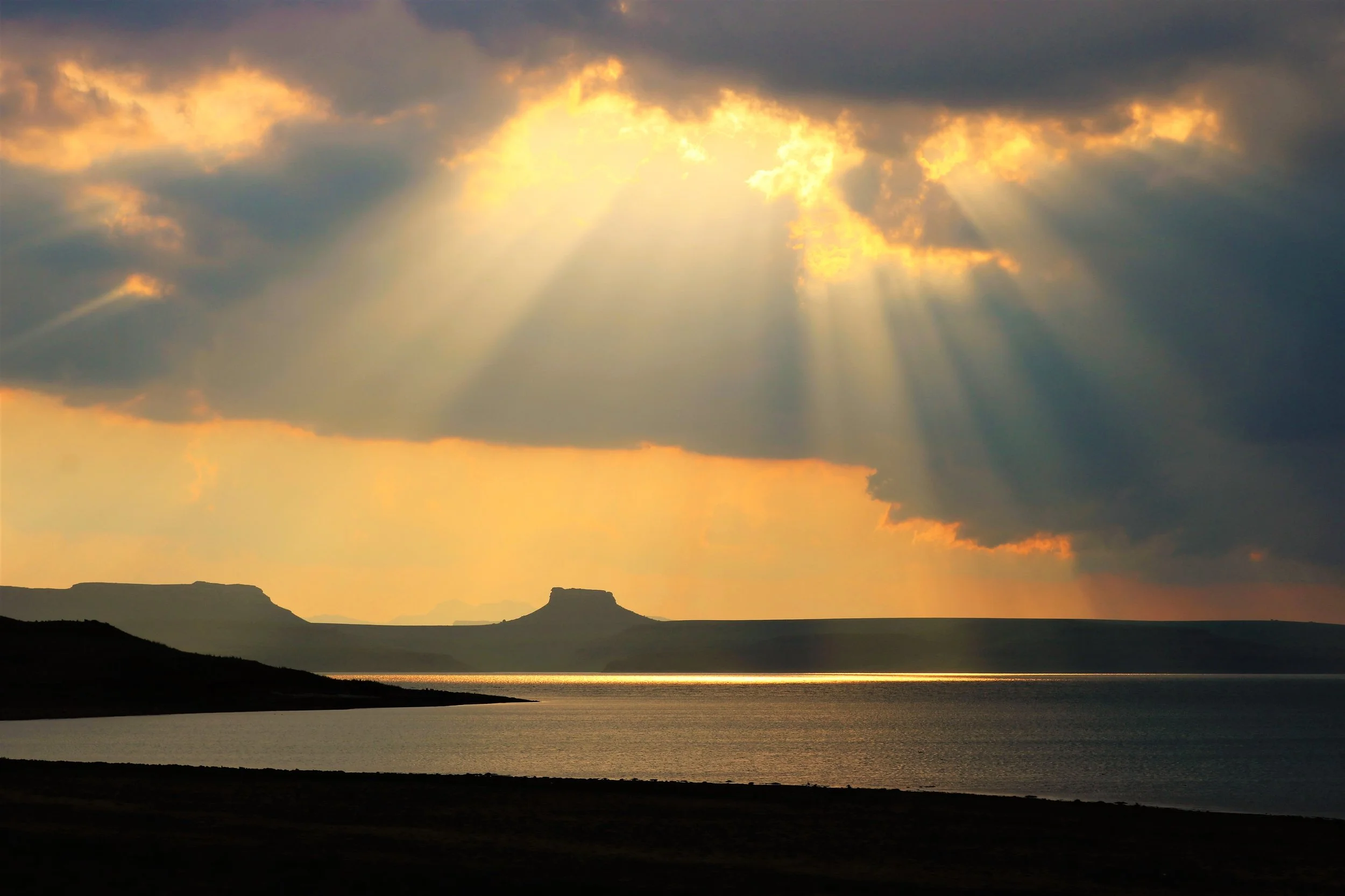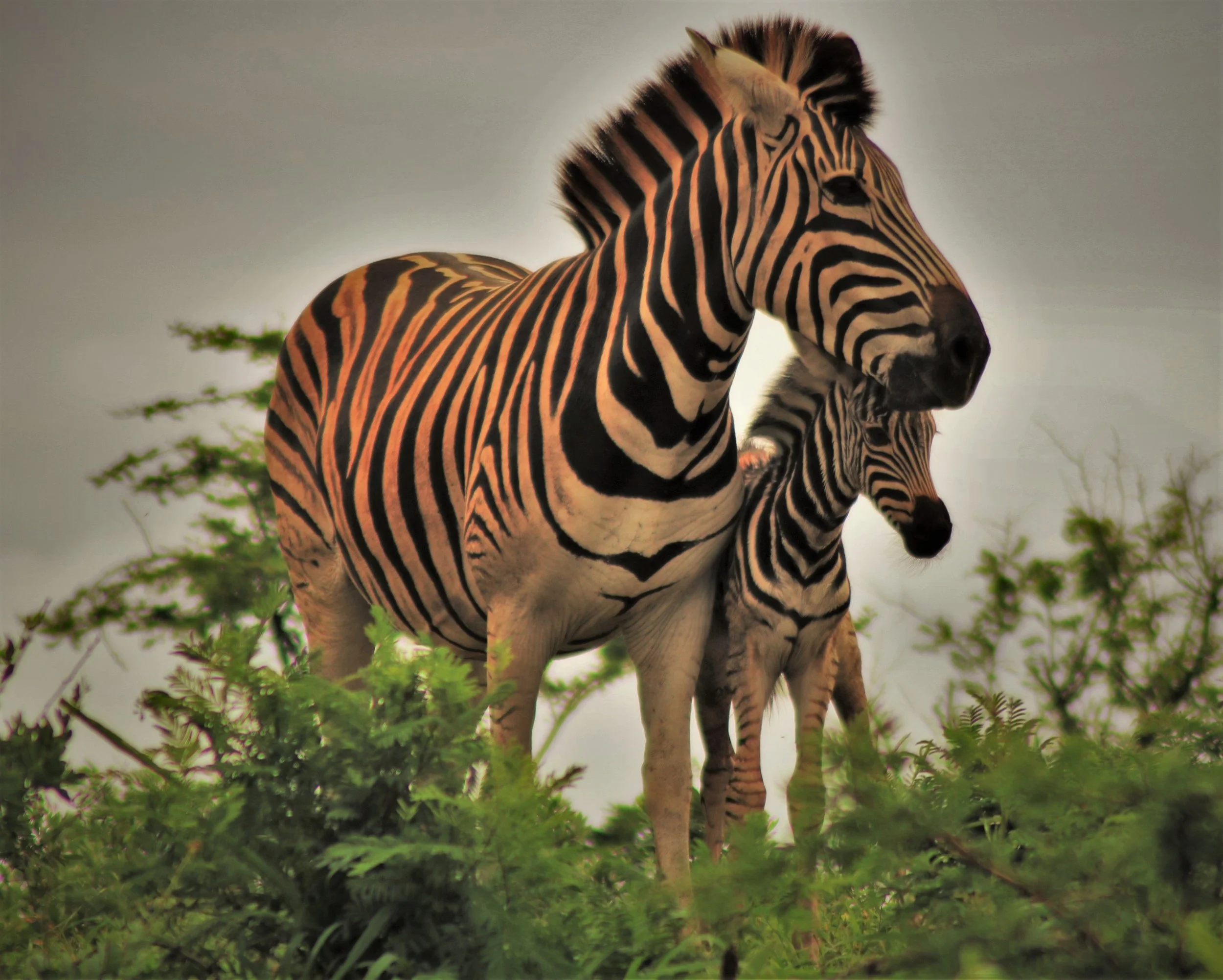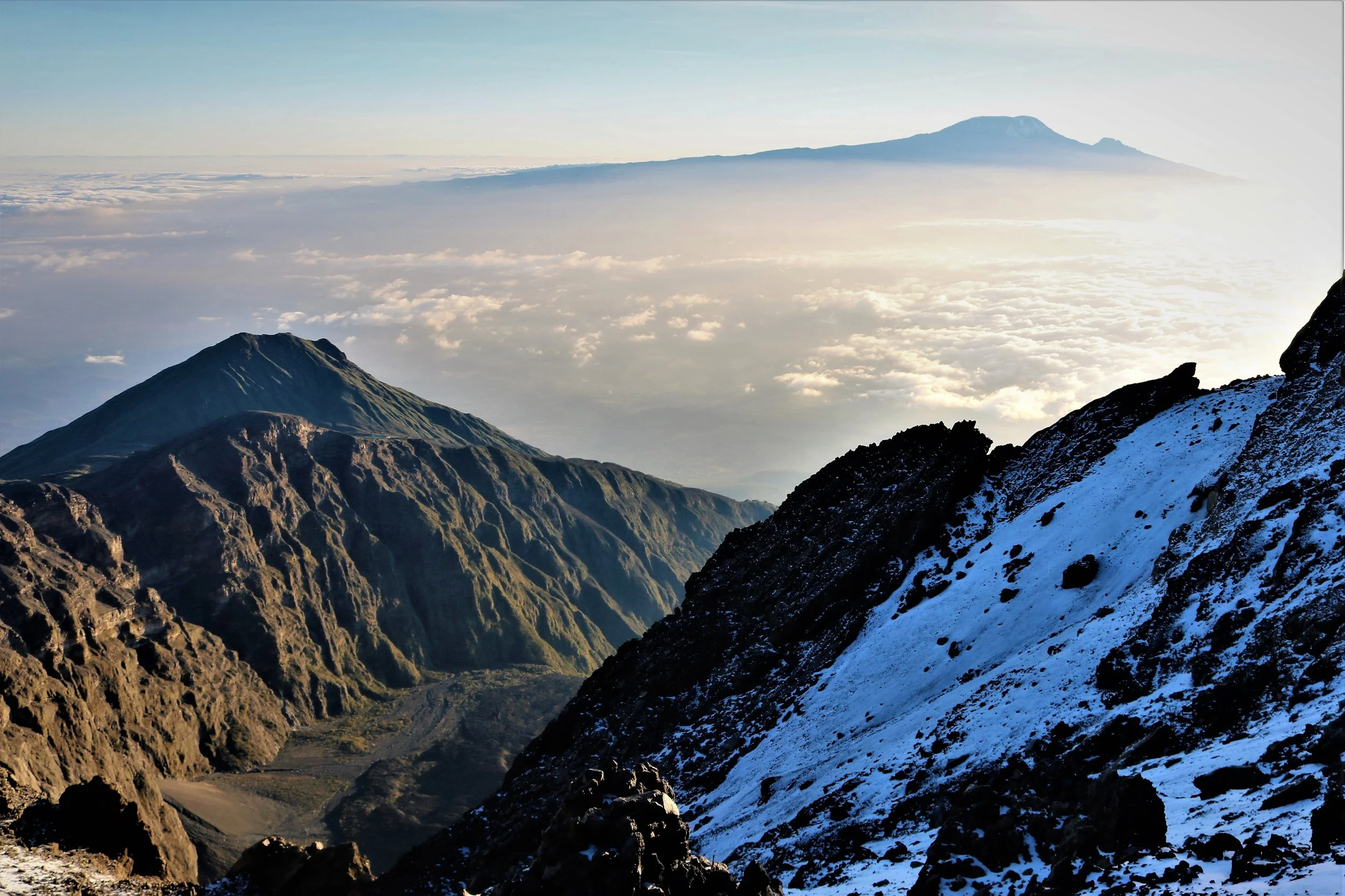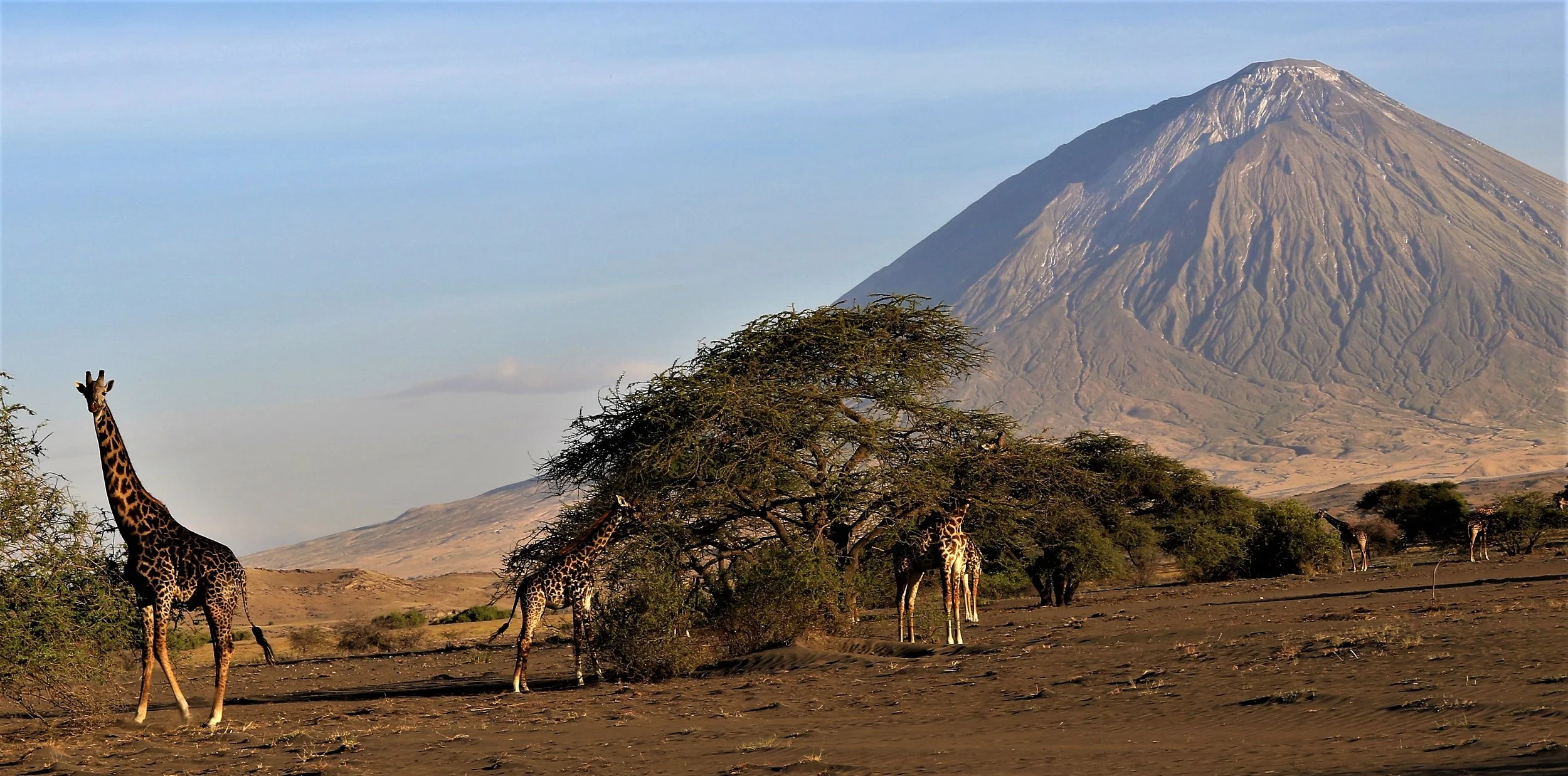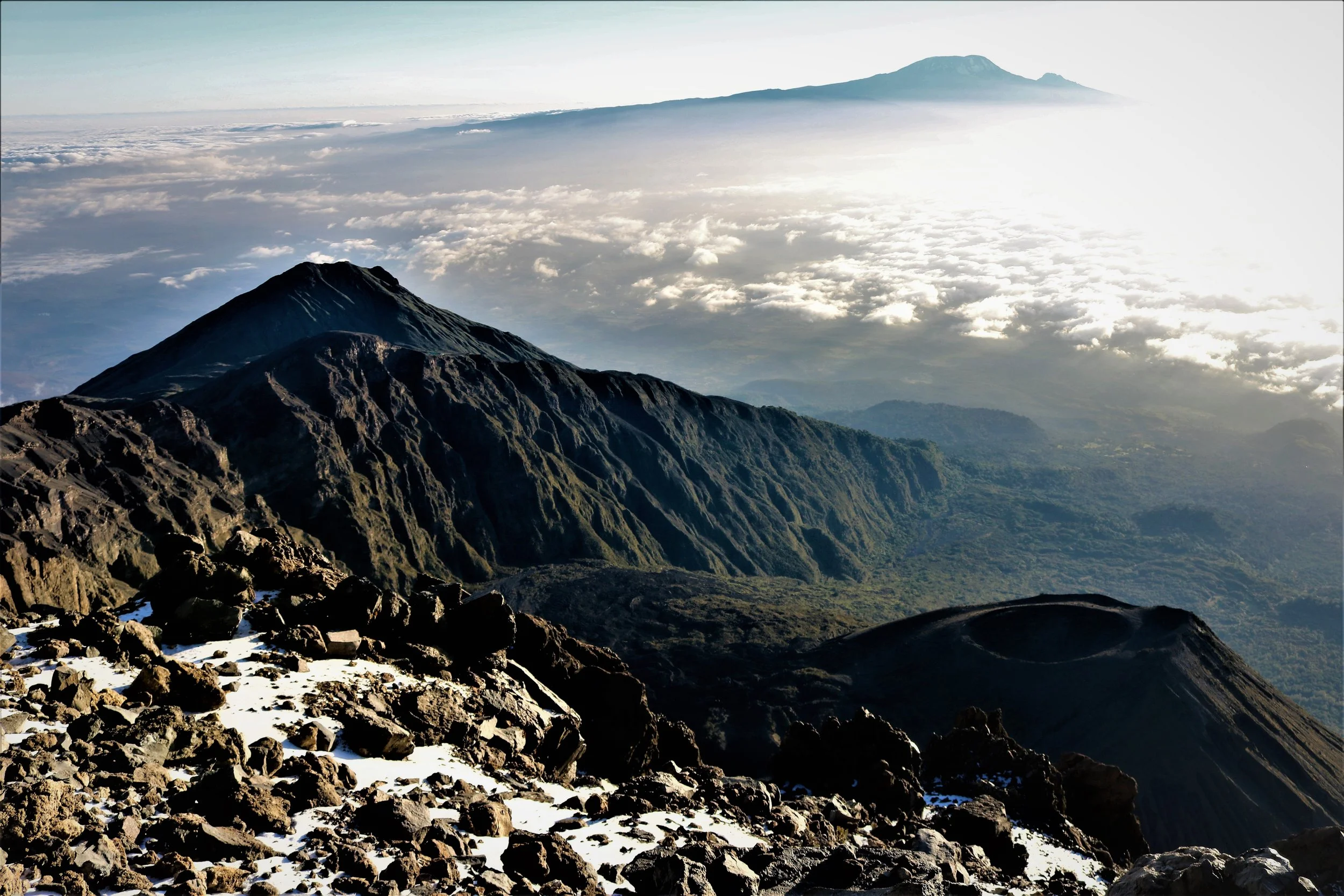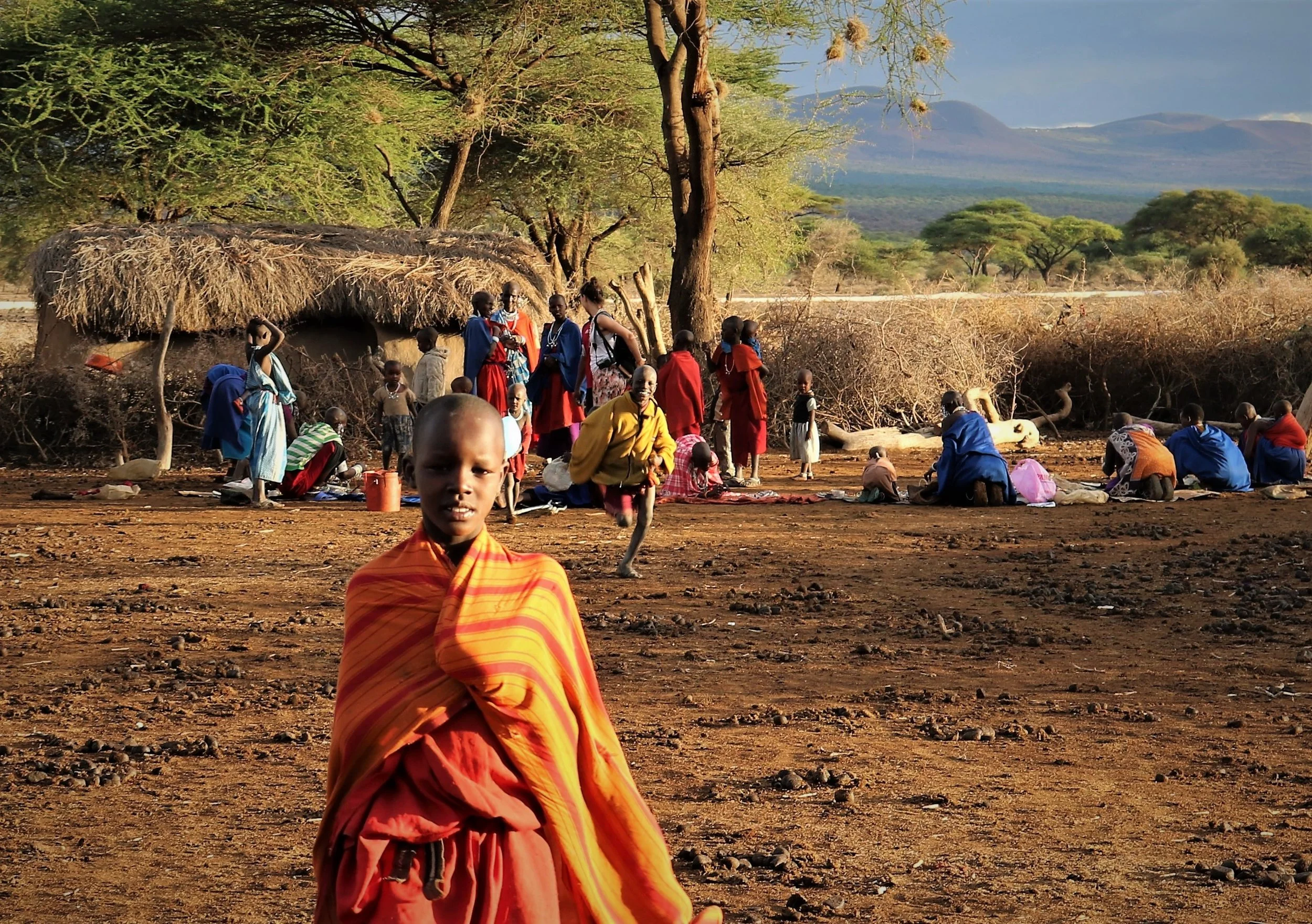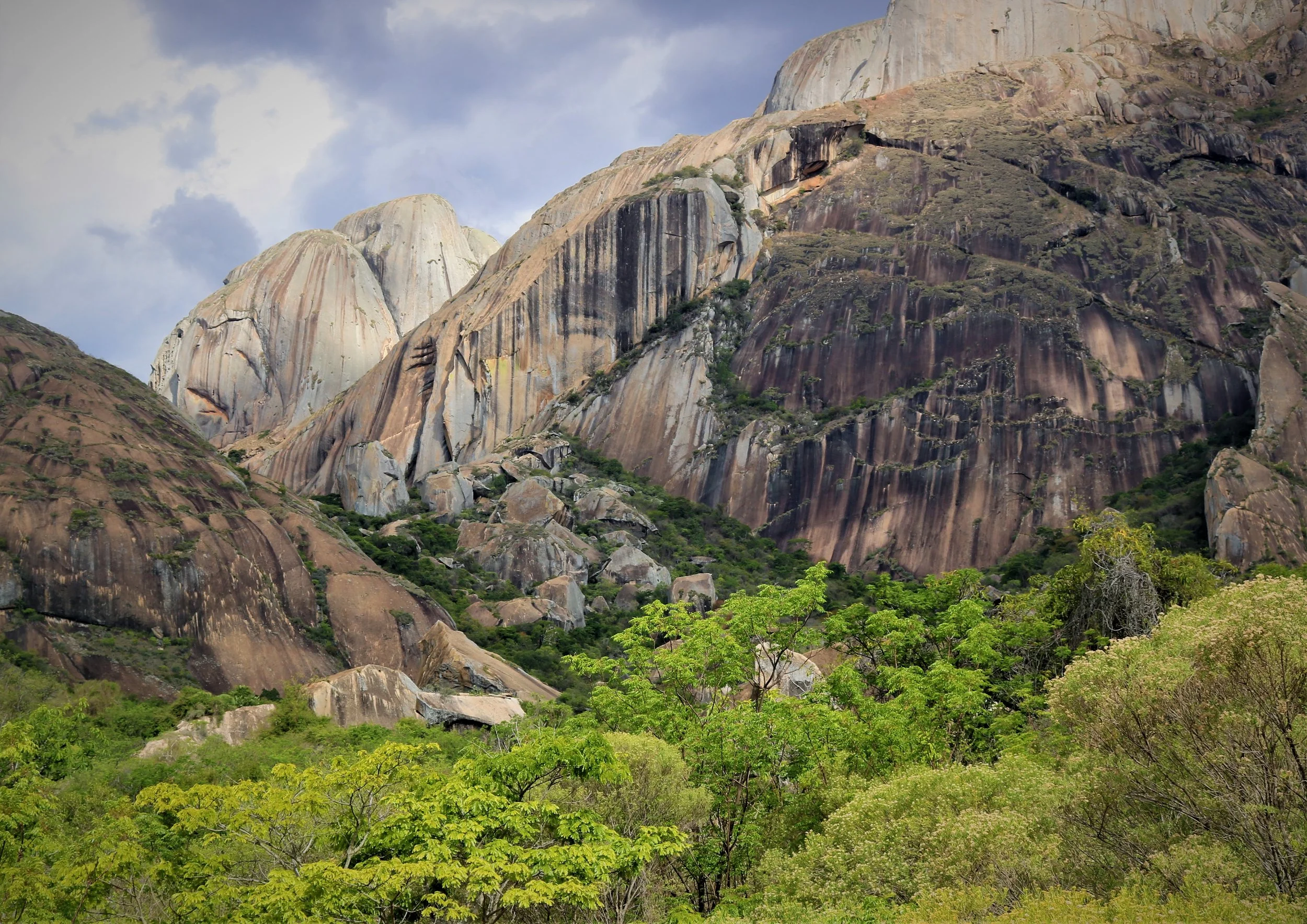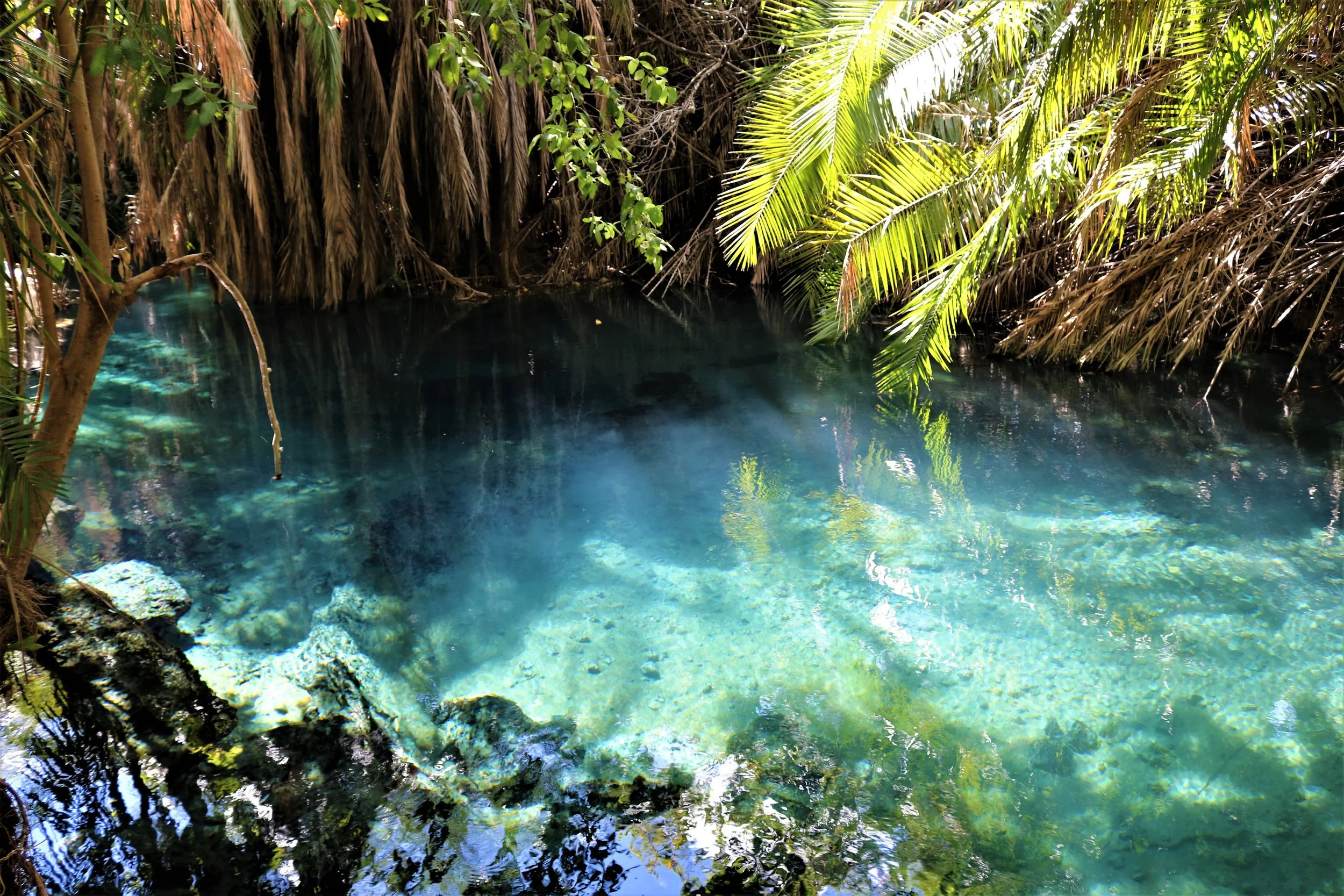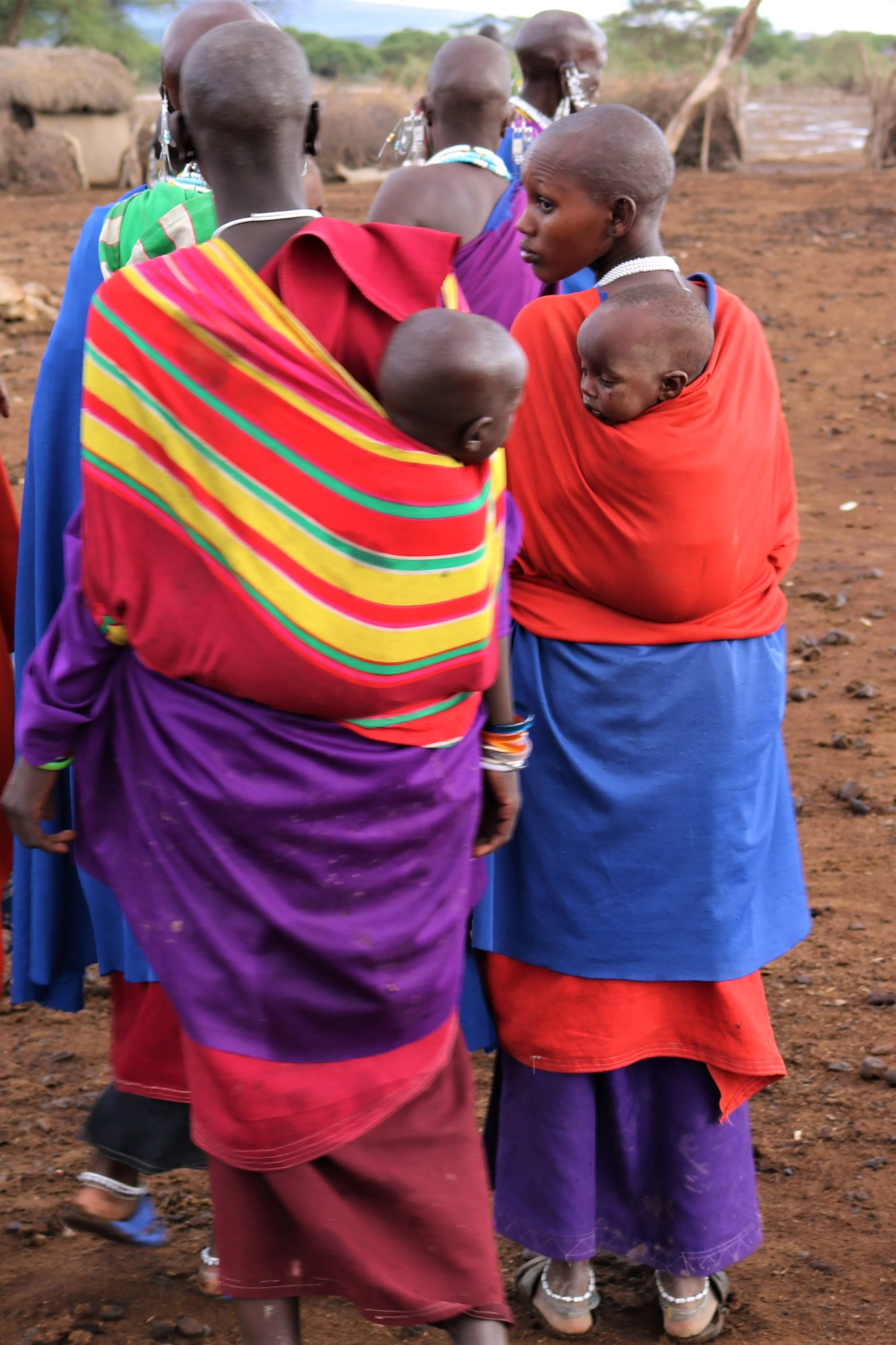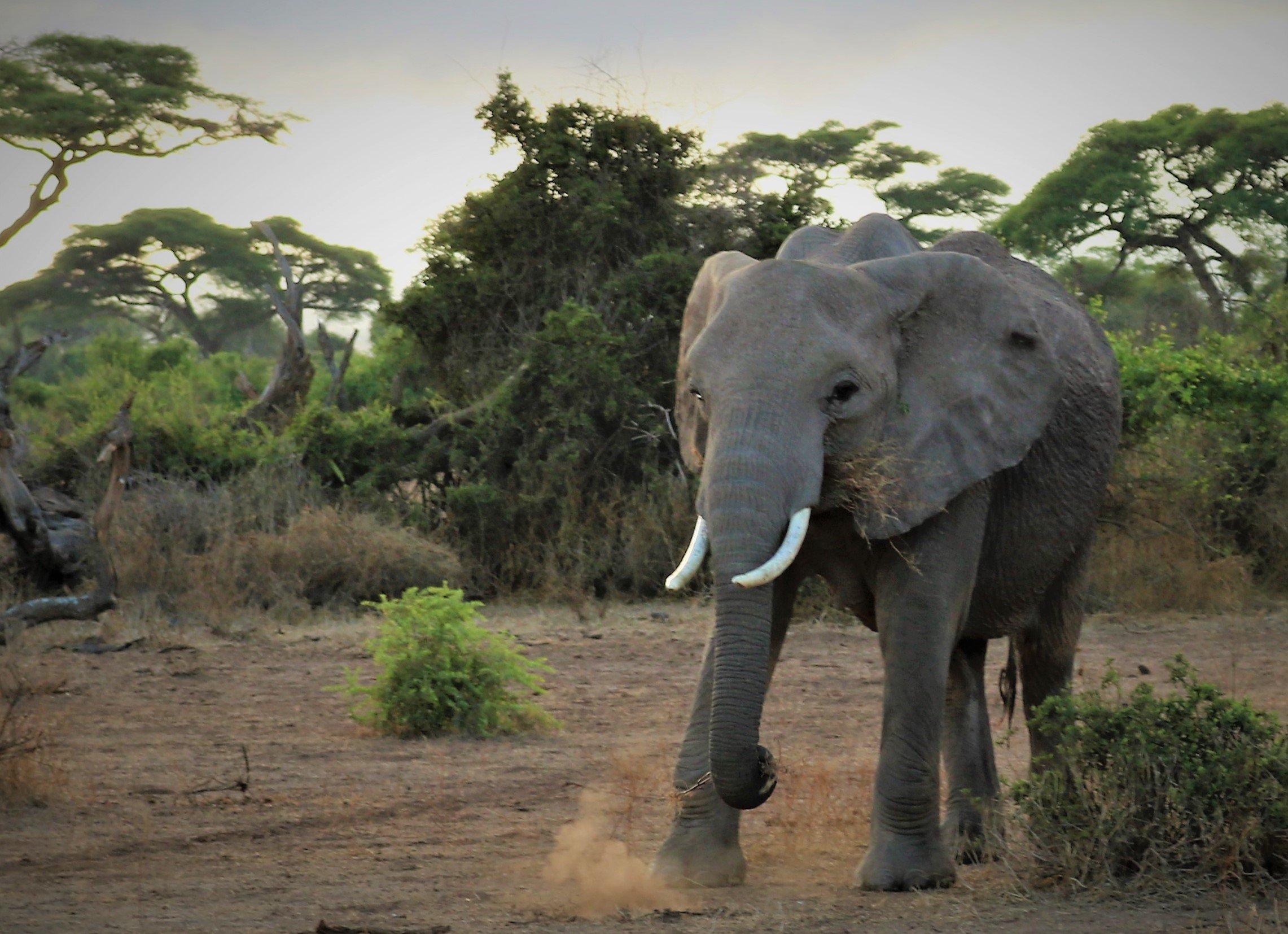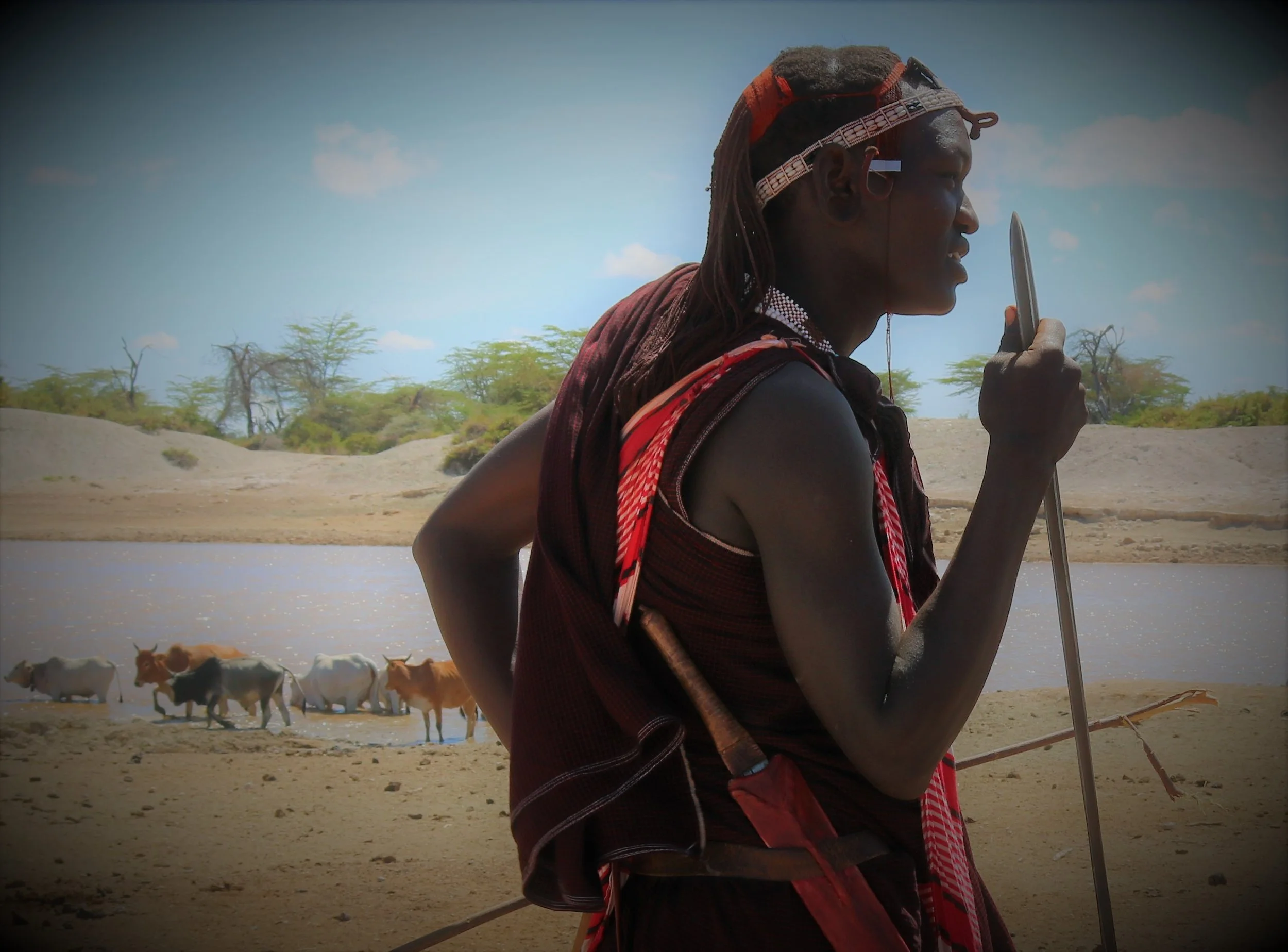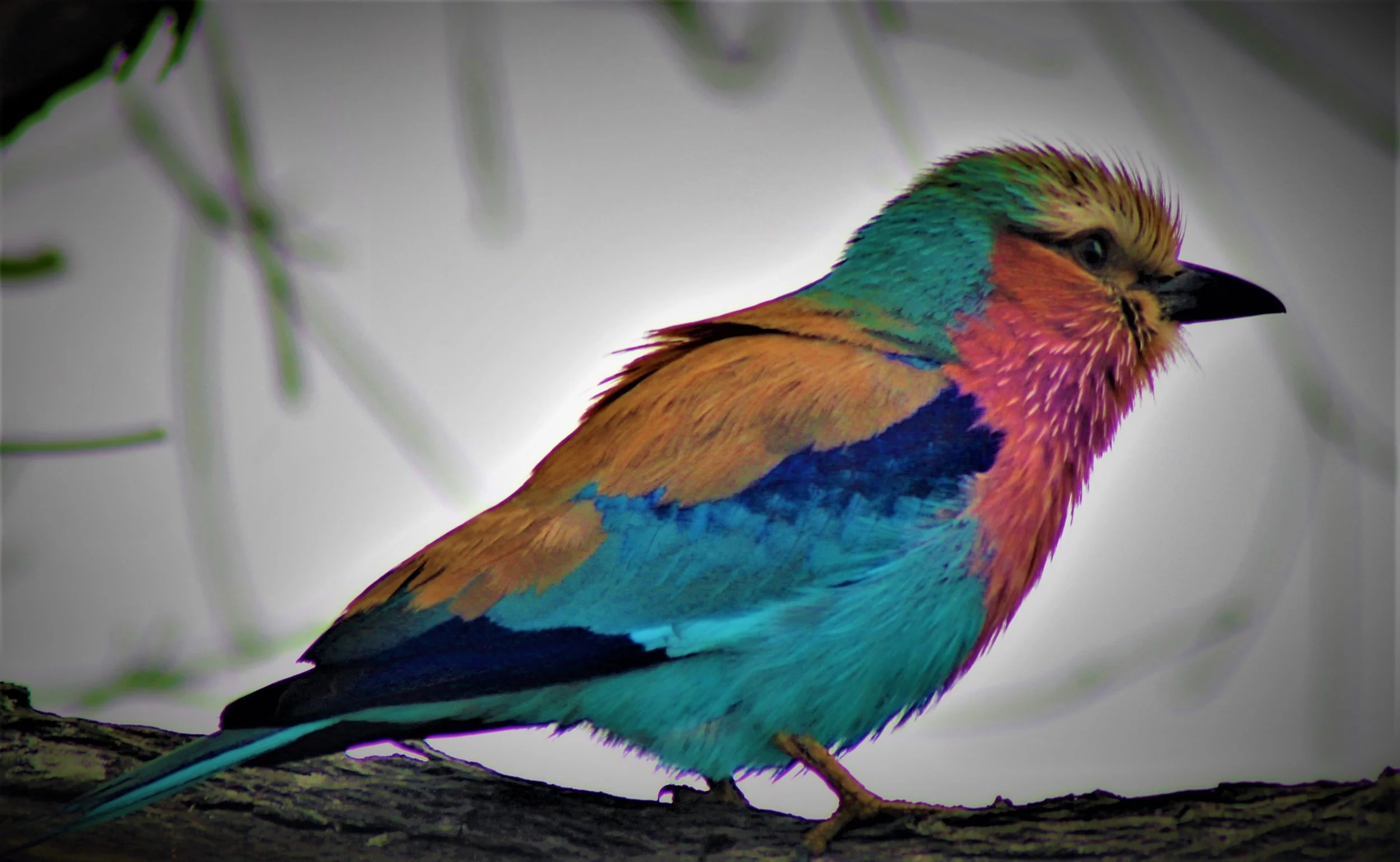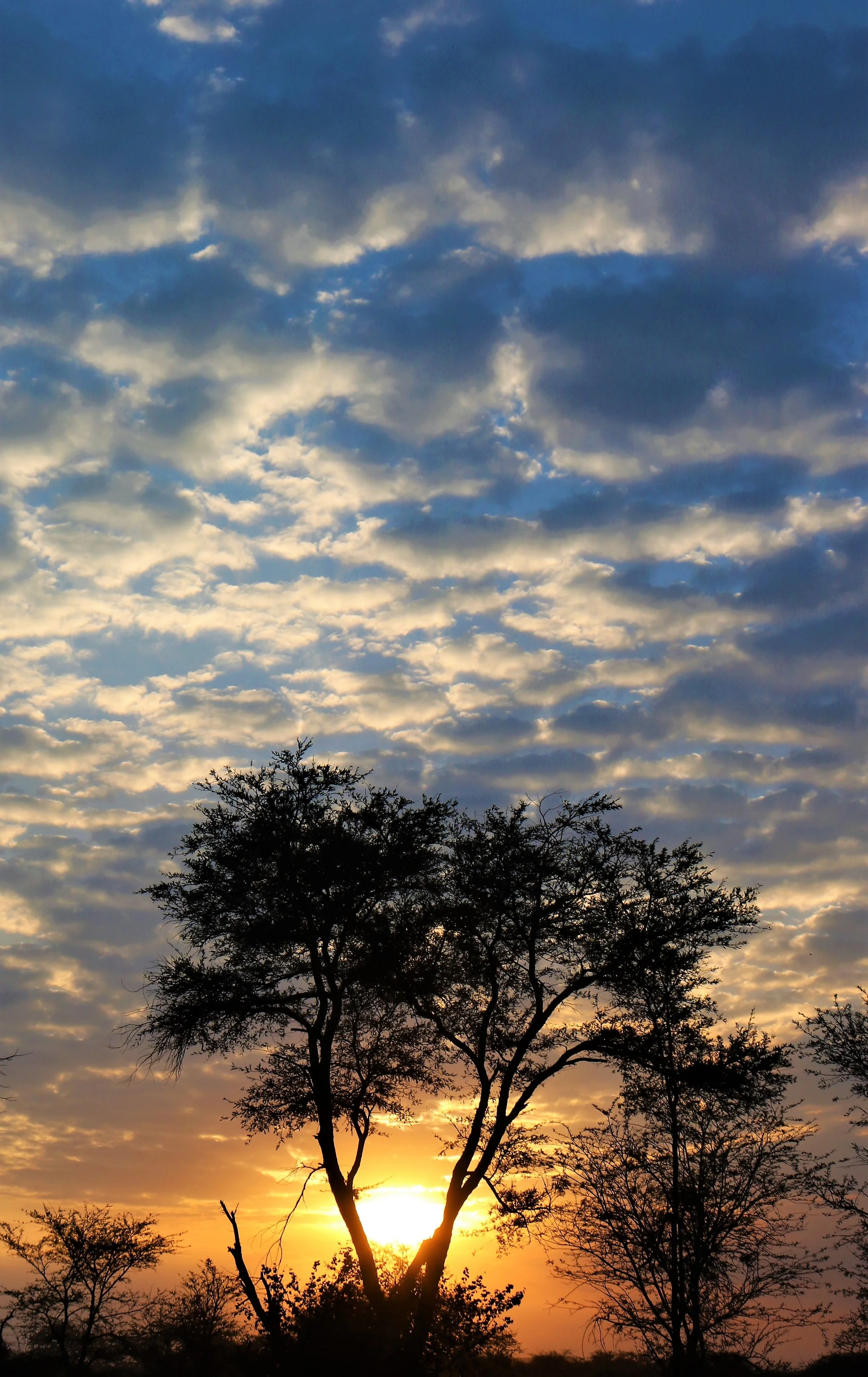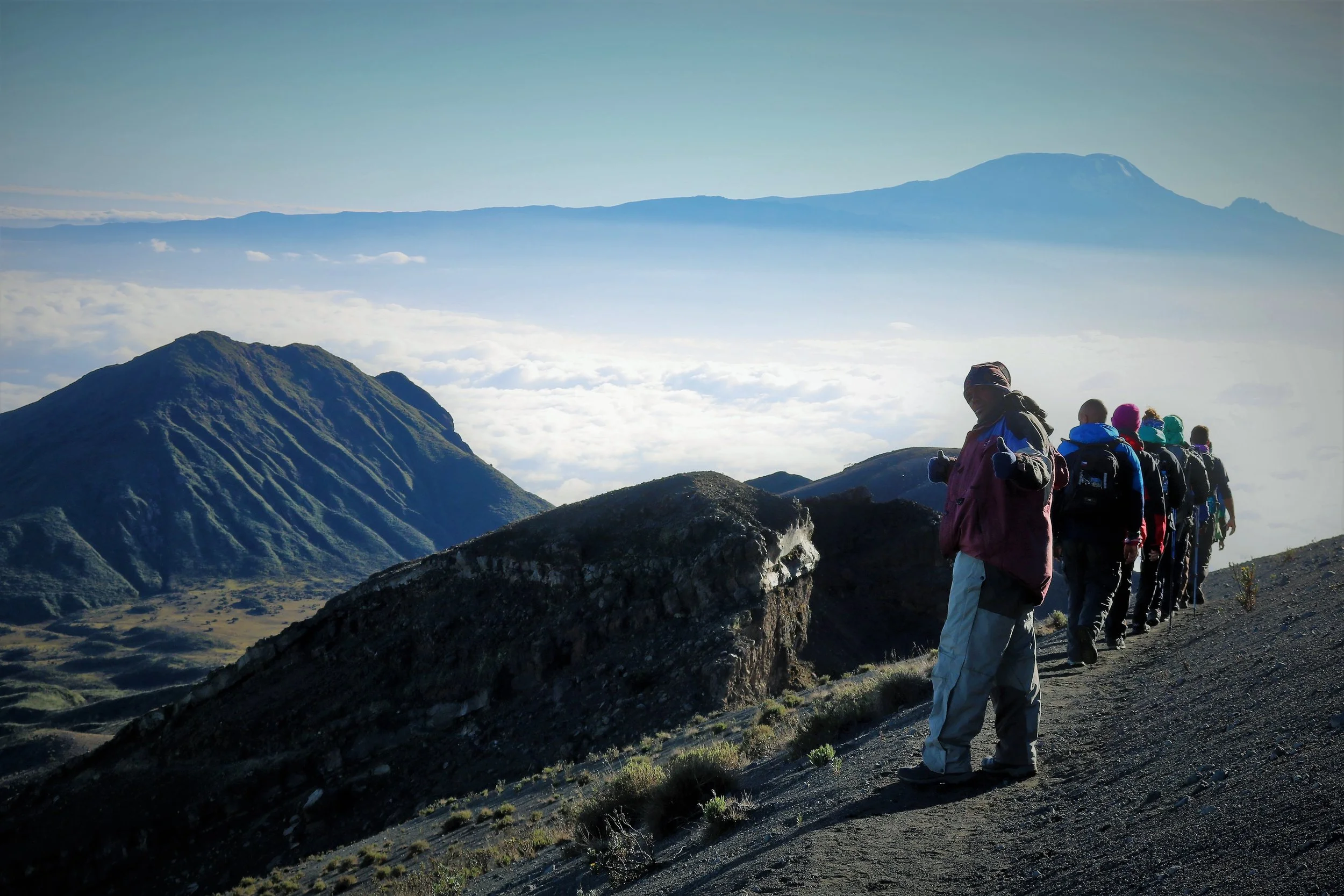

Having spent most of my career working for the NHS as a front-line Hospital Physician, I decided a change and a new challenge was in order by the summer of 2017. My youngest had just graduated from university and had joined her older siblings in gainful employment, so I was largely freed from economic bondage. As a family we’d previously enjoyed short periods of volunteering in India and Africa, as well as a longer stint working in New Zealand. Sally, the daughter of one of my colleagues, had just contacted me to ask if I could assist some young refugees from South Sudan who had made the long overland trek on foot to Kakuma refugee camp in Kenya. She had met them soon after their arrival on her gap year in 2014 and had promised to try to support them in their endeavour to find a home and an education in their adopted country. She wondered if I could help with the provision of medical and practical care for them, and I thought this seemed like the sort of opportunity I wanted.
We flew to Nairobi and travelled northwards by bus, stopping to stay with a Catholic Nun near Nakuru. Sister Vicky exudes energy. She had recently established a hospital clinic next to the school she runs, having spent some months working with me in the UK learning about UK health care. I was curious to see how she was implementing her newfound knowledge and keen to contribute to her efforts. Vicky is a great example of how one person really can make a difference and her energy and enthusiasm are infectious. A few days with her and we felt we could achieve anything. So, we travelled on up to Kitale near the Ugandan border where the 38 refugees, aged from 4 to 21 years, had recently settled into an overcrowded hut that they’d optimistically christened ‘Hope House’. Sally and I spent a week with them establishing their priorities and helping to secure their future education and nutrition. They also had several healthcare issues, most of which I was able to address with the aid of our rudimentary Swahili. It was hard not to admire their resilience and firm faith.
While we were there, Sally was contacted by a friend from Uganda whom she’d met on her gap year. Leah explained that she’d recently rescued 12 boys, all under the age of 12, from the sewers where they’d been living as street children to shelter from the police who beat them if they caught them above ground. I guessed the request and prepared my excuses. I explained that there was no way we could travel on to Uganda as we had neither visas nor yellow fever vaccination certificates, both of which were essential. Sally smiled and arranged for us to leave by motorbike at midnight. The next morning, I found myself surrounded by frightened young faces, which hadn’t seen soap for many months. I spent the day learning about life underground and what precipitated such an existence. Leah has a heart of gold, as well as a very persuasive tongue. She translated the boys’ responses to our many questions. They told me that education was their only route out of poverty and that they valued this even above the other priorities we’d identified. Two evenings later, Sally, Leah and I calculated on the back of a beermat what it would cost to provide them with an education, combined with food, clothes, lodging and a little love for a few years. It felt affordable and eminently justified. I told Leah that I would see what we could do to help make this reality.
I returned home later that month and was contacted almost immediately by another friend, Prof Richard Walker, about a proposal for a National Institute of Health Research (NIHR) project with Glasgow University to examine the prevalence and socio-economic effects of arthritis in Tanzania. He asked if I’d like to undertake the field work and train local health care workers in the diagnosis of rheumatic disease. How could I refuse? The project was based around Kilimanjaro, a place I’d dreamed of visiting since childhood. Like buses, everything came at once. Medical students asked to do their electives with me at Kilimanjaro Christian Medical Centre (KCMC) the following year, and I was invited to support an initiative with Health Education England (HEE) at KCMC that autumn.
Suddenly East Africa felt like it needed me just as much as I needed it, and I embraced the opportunities that came my way. I spent the autumn in Tanzania supporting HEE and establishing the contacts needed for the NIHR project. I became increasingly involved in helping to teach the clinical undergraduate curriculum to medical students at KCMC. In Spring 2018, I took four international medical students to KCMC for their clinical elective studies. They shared my loftier ambitions and we analysed and later published our physiological responses to ascending to the summit of Mount Kilimanjaro. I spent the summer teaching another 12 UK medical students at KCMC and spent the autumn teaching medical trainees from both Tanzania and the UK. Our NIHR project field work began in Spring 2019, and I spent a month teaching and training the local team and supporting 3 Newcastle MSc students in their project which interfaced with the NIHR-funded rheumatic disease project. The work for HEE in Tanzania facilitating learning opportunities for UK medical trainees in a teaching environment continued over three autumns until the end of 2019.
Parallel with these developments, we established a home for the street children in Uganda where the boys all commenced school, some of them for the first time. Once I saw just how determined they were to take advantage of the opportunities we had fashioned, we bought a house with land near to their school and donated it to the Charity. Leah, wanting to name it after us both, called it Kelah House and appointed several staff to help her run the place and grow as much of the food as we could on site. Meanwhile, we managed to establish a system in Hope House to allow all the refugees to access education. I maintained annual visits to both charities except for 2020 when covid prevented this. It was evident that education was the only way out of poverty and the cycle of deprivation for both groups. The refugees told me that they wished to return home to South Sudan and share their newly acquired knowledge with the children there, so we bought land in Wau to build a school and grow green food, with the approval of the South Sudanese education authority.
In 2018, Leeds University invited me to teach rheumatology and rehabilitation at a hospital in Antananarivo in Madagascar. I accepted and we established links with general medicine services. However, health care needs were often very basic, especially in the south of the country where 250 deaths had occurred that year because of an outbreak of plague, while repeated crop failures led to children being fed ground-up locusts as protein supplements to combat starvation. I returned the following year to continue the work and present our research findings to their national society AGM, which tested my schoolboy French to the limit. Most of the 18 trips which I made to Africa prior to the covid epidemic were self-funded, so I accepted the offer of a locum post in rheumatology at James Cook University Hospital (JCUH) to help provide financial support for both the charities and for my overseas medical work. Once covid led to lockdowns, my appointment was converted to a substantive NHS post, and I was asked to work fulltime on the medical wards and in outpatients.
However, there was still time in early 2020 for one more trip to KCMC where we expanded the training program for new members of our NIHR research team. Although a combination of wet weather and the subsequent epidemic made for slower progress than planned, our research did succeed in documenting the case mix and prevalence of rheumatic disease for the first time in Tanzania, while also allowing for detailed assessments of the socio-economic impact of arthritis in the Kilimanjaro area. I continued to work across the spectrum of general medicine at KCMC at the same time, helping with teaching and advising on complex and serious clinical cases. One Friday afternoon I was fast bleeped to the resuscitation area to assist a young Russian climber who had just been brought down the mountain. He had experienced cardio-respiratory arrest on arrival at KCMC and had features of combined high altitude pulmonary and cerebral oedema. Along with two excellent Dutch nursing colleagues, we were able to stabilise him, and he made a full recovery after a prolonged period of subsequent respiratory support. Certainly, we saw quite a few people with serious complications arising from their attempted ascent of Kilimanjaro and not all were as lucky as he was. We were also asked to undertake peripheral clinics in remote rural areas where there were no experienced medical staff on hand to support the juniors, and this afforded the opportunity to extend the teaching role. We combined these trips with collecting samples of drinking water from around the Kilimanjaro watershed to investigate local concentrations of fluoride and other halides because of the prevalence of fluoride-driven bone and tooth disease, along with endemic goitre.
When covid finally brought down the curtain on working in person in East Africa for a while, I combined my fulltime NHS role on the medical wards with the provision of remote education for health care professionals in Africa. Difficult though life was for everyone with the lockdown rules, my empty evenings were filled with preparing and sharing educational ideas and experiences at home and abroad. The rapid adoption of telemedicine using platforms like Zoom and Teams accelerated the ease with which virtual meetings could be held across the world. I delivered talks to many East African, Asian, and South American countries during 2020 and 2021, as well as to several domestic organisations and we covered a range of topics from interstitial lung diseases to chronic pain management. I was also asked to work with a couple of international global health charities to share knowledge and contacts in East Africa, and to provide medical support for organisations who care for refugees trapped in Immigration and Detention centres, all of which had to be done online.
In 2021, the situation eased sufficiently for us to resume face to face support for people in East Africa. In addition to completing our NIHR project work in Tanzania, I was invited by a Scottish charity to lead a team to assess the medical needs of people living in poverty in Zambia. In March 2022, I took two younger friends and colleagues whom I’d supported during their training and early careers, and we spent a month at a variety of locations around Zambia providing general medical care at our own expense. The highlight for us was the final week spent camping on a peninsula on the edge of the lake created by flooding the Zambezi River and visiting people on the islands by boat each day. Our clinics were held under baobab trees, and we had to navigate past crocodiles and hippos on our daily commute.
In June 2022 I was invited to Zanzibar to assist with developing rheumatological services there. I spent the days teaching and undertaking outpatient and inpatient consultations of complex cases, and the evenings helping prepare a report for the Health Ministry. We defined the priorities in developing and delivering care for those with rheumatic disease among the 2.5 million people living on the islands off Tanzania. We proposed a timeline for service development which we costed and received assurances from the health minister that he would implement these. I’ve been asked to return on a regular basis to continue work each year and we now hold monthly case-based discussions online.
For the first time my family came with me to East Africa in the summer of 2022 when we visited our charities in Kenya and Uganda. We started by spending time with Sister Vicky who asked me to do a clinic at a rural location in Kenya. She woke me at 6am and asked me to look out of the window: I saw a long line of colourfully dressed people of all ages already waiting. I worked non-stop all day until dark, but the line still stretched on, despite having undertaken 124 consultations. I continued working the next day and was able to perform some basic essential procedures with the support of local health care workers who joined me. From Nakuru, we moved on to visit the Refugees at Hope House and spent 5 days discussing their future ambitions in detail. We visited local schools and planned the structure, timeline and cost involved in building the school they envisaged in South Sudan on the land we had bought in 2019. Subsequently, we have confirmed our plans for the school and construction commenced in early 2023, with the intention of relocating Hope House to this site a year later once the school was able to receive pupils. The dream is a now a reality, with almost 180 pupils and 7 teachers including our returning refugees. Our intention is to turn the tragedy of forced migration through conflict into triumph by using the education these young people acquired in Kenya to educate their countrymen, while also ensuring they have a sustainable income.
We then moved across to Uganda and spent time at Kelah House where my family were again instrumental in helping to bridge the age and culture divide. We spent several days planning and talking to each of the children individually to understand their hopes for the future. Although all have seized their educational opportunity, some of the children have struggled academically because of prior trauma and exposure to noxious substances. The lads want to be apprenticed to mechanics and carpenters which we have facilitated. The brightest children are continuing through secondary school and beyond. We discussed their future, and they are keen to explore the opportunity of becoming social workers. Given their lived experience of homelessness, they are well placed to work within services designed to break the cycle of deprivation and poverty that produces this. Such an approach would also facilitate our ambition to amalgamate Kelah House into Uganda’s Social Service network in the future, thereby securing its place in continuing to support vulnerable children. This way we can achieve long term sustainability without long term financial dependency.
Over the last few years, we have been able to develop links across five countries in East Africa, facilitating the development of much needed clinical services for communities who had very little access to medical care. In Tanzania we have shown that non-communicable disease (NCD) accounts for the great majority of inpatient medical admissions and that rheumatic disease is one of the commonest disorders within the community. These data were supported by the finding that 25% of our 1,089 clinical consultations in Zambia and Kenya related to musculoskeletal disease. In Tanzania, our NIHR project work revealed a prevalence of MSK disorders of 3.4% of adults in villages around Kilimanjaro, while children were affected far less frequently. Further publications defining the nature of these disorders and the need to address their medical and socio-economic consequences have followed. Other initiatives have included working with the Departments of Psychology at both KCMC and UK universities to recognise and address the growing burden of mental health issues among young people both home and abroad. Our further research projects with academic centres build on physical, psychological, and socio-economic aspects of illness in Africa, but formal academic output is not the only important measure of our success.
Clinical service development has continued apace and our work in East Africa is supporting this by training local health care workers and empowering them to lead the way in promoting future health care provision. This has incorporated the teaching and training of African students and staff at all levels across several countries, while also recognising the importance of ensuring both political and economic support for these initiatives. The infrastructure around health care provision in these countries has traditionally focused on preventing and treating infectious disease, so education around the detection, diagnosis, and management of NCDs at all levels is an essential element in this process and requires significant investment. Given the worldwide economic situation, external investment in promoting the health of developing countries is unlikely to increase soon, so ongoing input from non-government organisations, charities and motivated individuals remains essential.
As a further aid to teaching, and in acknowledgement of the limited use of darker skinned people in medical publications and illustrations, we have produced a video on examination of the musculoskeletal system in Africans by Africans. In addition, we have commenced an illustrated collection of clinical cases of rhematic diseases in Africans, all with appropriate consent. Our work has continued to involve liaison with colleagues from around Europe, despite the UK’s political position, and our clinical teaching has encompassed students from all around the world. Links between students and doctors from the UK and Tanzania have been forged and it is to be hoped that these bonds continue to strengthen over the next decade when great progress can be envisaged.
I have undertaken a significant amount of clinical research over the last few years and list below some of my recent publications. These papers cross traditional borders, reflecting my broad interests in the overlap between humanitarian and medical support, mental and physical wellbeing, lung and joint disorders. In addition to investing significant time into my academic and teaching roles at several UK and African Universities, I spend 8 sessions each week doing NHS work in Cleveland and North Yorkshire to develop clinical services, leading development in pain management and lung disease therapy. The income generated from these activities helps to fund our continuing efforts in East Africa. I feel very privileged and fulfilled in undertaking these roles.
2023 saw the fulfillment of a long-held ambition to walk the Camino to Santiago from Porto. We met many inspiring people on the way and our adventure is described and illustrated on this link: https://doi.org/10.32388/WQMBBT.2 The last two years has seen the resumption of some high altitude challenges, including tackling the Carpathians in Romania and the Caucasus in Georgia, and climbing above the Everest Base Camp in Nepal. I’ve also been fortunate enough to be able to explore Vietnam and Sri Lanka. Comparing Buddhism across these three Asian countries is fascinating.
Most recently our work in support of neurodivergent people has been recognised and rewarded by the Royal College of Physicians. This has been a particularly meaningful development in the light of the difficulties we once faced after responding to requests for help from one neurodivergent individual. We have recently produced a highly successful podcast defining links between chronic pain, hypermobility and neurodivergence: Airing Pain |Pain Concern
Academic and teaching work have accelerated and a brief synopsis of our recent publications are offered below. Further information can be found on LinkedIn (2) Dr Clive Kelly | LinkedIn, and on my ORCID registry Clive Kelly (0000-0003-1536-7908) - My ORCID.
our RECENT PUBLICATIONS on triple themes of africa, mental health and interstital lung disease
Laura Ryan, Ella Thomson, Harriet Beer, Ned Philcox and Clive Kelly. AUTISTIC TRAITS CORRELATE WITH CHRONIC MUSCULOSKELETAL PAIN: A SELF-SELECTED POPULATION BASED SURVEY. OBM Neurobiology 2023, Volume 7, Issue 1, doi:10.21926/obm.neurobiol.2301155 16 February 2023
Kuo C, Black L, Barber S and Kelly CA. Arthritis in East Africa. African Journal Rheumatol 28 Feb 2023 Vol. 11 No. 1 (2023), pages 3 – 9.
Koduri G, Podlasek A, Pattapola S, Laila D, Nandagudi A, Dubey S, Kelly C. Four-factor risk score for the prediction of interstitial lung disease in rheumatoid arthritis. Rheumatol Int (2023). https://doi.org/10.1007/s00296-023-05313-6
Clive Kelly. Joining the dots: providing medical and humanitarian assistance in East Africa. RCP Commentary March 2023, pages 28-34. Commentary magazine | RCP London
Clive Kelly. The Association between Fibromyalgia, Hypermobility and Neurodivergence Extends To Families: Brief Report. Int J Psychiatr Res. 2023; 6(3): 1-5.
Mmbaga, B. T. et al. (2023) Musculoskeletal (MSK) disorders with arthritis screening in Tanzania: new insights into the growing clinical, economic and societal burden of non-communicable disease. Tanzania Public Health Bulletin, 10(1), pp. 8-14.
Kelly CA. The dangers of being a good Samaritan. Published in ‘Voice of Doctors’ October 2023 Blog - Protecting Medics (voiceofdoctors.org)
Garton M and Kelly CA. Does reduced cathepsin activity contribute to skin and lung fibrosis in patients with systemic sclerosis and related disorders? 13th October 2023 Rheumatology, kead549, https://doi.org/10.1093/rheumatology/kead549
Thomson E, Beer H, Ryan L, Philcox E, Kelly C. Food intolerance and sensitivity are associated with features of fibromyalgia in a self-selected community population. Food Health. 2023;5(4):17. doi:10.53388/FH2023017
Said S, Omar N, Juma F, and Kelly CA. Clinical, serological and radiological findings in patients with rheumatoid arthritis from Zanzibar comparing those with and without interstitial lung disease Trends in Immunotherapy (2023) Volume 7 Issue 2. https://doi: 10.24294/ti.v7.i2.2716
Martin R, Taylor R and Kelly CA. RECOGNISING THE RHEUMATOLOGICAL NEEDS OF NEURODIVERGENT FEMALES: COMMENTARY. Rheumato, November 2023.
Dr Clive Kelly. Surviving a referral to the GMC. ‘RCP Commentary’ 2023. December 3rd 2023, pages 32-34.
Kilonzo K, Krauth S, Halliday J, Kelly C, Siebert S, Temu G et al. Estimating the prevalence, quality of life, economic and societal impact of arthritis in Tanzania: protocol for a mixed methods study. Doi.org/10.17504/protocols.io.8epv5j8r4l1b/v1
Kelly C. International Clinicians and Academics Supporting the Refugee Journey- personal narratives from the field. Qeios 2023 https://qeios.com/read/RWM24L.12
Juge P, Granger B, El Houari L, McDermott G, Doyle T, Kelly CA et al. Déchiffrer la pneumopathie interstitielle diffuse associée à la polyarthrite rhumatoïde en utilisant une analyse en cluster hiérarchique non supervisée : résultats d’une collaboration internationale. Revue du Rhumatisme Volume 90, Supplement 1, December 2023, Pages A27-A28 https://doi.org/10.1016/j.rhum.2023.10.040
Mark Garton, Clive Kelly, Does reduced cathepsin activity contribute to skin and lung fibrosis in patients with systemic sclerosis and related disorders?, Rheumatology, Volume 63, Issue 3, March 2024, Pages e81–e82, https://doi.org/10.1093/rheumatology/kead549
Kelly C, Taylor R, Martin R, Doherty M. Recognising and responding to physical and mental health issues in neurodivergent girls and women. BJHM 2nd April 2024; Volume 25, issue 4. https://doi.org/10.12968/hmed.2023.0337
Said S, Yongolo N, Biswaro S, Walker R, Kelly C. Decolonisation of health care in East Africa: opinion piece. 24th April 2024. GHES null, 0(0), 2299. https://doi.org/10.36922/ghes.2299
Kelly, C. A., Kelly, C., & Taylor, R. (2024). Review of the Psychosocial Consequences of Attention Deficit Hyperactivity Disorder (ADHD) in Females. European Journal of Medical and Health Sciences, 6(1), 10–20. https://doi.org/10.24018/ejmed.2024.6.1.2033
Hannah J, Rodziewicz M, Mehta P et al. The diagnosis and management of systemic autoimmune rheumatic disease-related interstitial lung disease: British Society for Rheumatology guideline scope. Rheumatology Advances in Practice, 18 April 2024. Volume 8, Issue 2, 2024, rkae056, https://doi.org/10.1093/rap/rkae056
Yongolo N, Halliday J, Bunn C, Mtesha B, Kelly CA, Krauth S et al., Estimating the prevalence and predictors of rheumatological disease in the community of northern Tanzania – a pilot study. Pan African Medical Journal 2024; 47: 36 doi: 10.11604/pamj.2024.47.36.38258
Brown K, Chaudhuri N, Corte T, Dieudé P, John L, Kelly C et al. A modified Delphi exercise in physician-perceived risk factors for drug-induced pneumotoxicity in patients with rheumatological disease. BMC Pulmonary Medicine 2024; 24: 547 https://doi.org/10.1186/s12890-024-03287-0
Anika Ali and Clive Kelly. Redefining the treatment and rehabilitation of UK prisoners. Qeios December 2024.
Dasigan K, Langman K, Iftikhar Z, Kelly CA. Hypermobility and pain – a review of recent developments and their application to clinical practice. Jan 22nd 2025 TouchREVIEWS in RMD. 2025;4(1): DOI: 10.17925/rmd.2025.4.1.4
Deidda M, Grieve E, Krauth S, Hsieh PH, Yongolo N, Siebert S, Halliday J, Biswaro SM, Kilonzo K, Walker R, Kelly C, Msoka EF, Kiula K, Mmbaga B, McIntosh E. Economic burden of musculoskeletal disorders in Tanzania: results from a community-based survey. BMJ Open. 2025 Jan 15;15(1):e087425. Doi:10.1136/bmjopen-2024-087425. PMID: 39819935; PMCID: PMC11751939.
Kelly CA, Shaikh M. Practical issues relating to the use of antifibrotic therapy in patients with interstitial lung disease and rheumatoid arthritis. J Rheumatol. 2025 Apr 1: jrheum.2025-0103. Doi: 10.3899/jrheum.2025-0103.
Downs J, Kelly C. Improving understanding, recognition and treatment for men with anorexia nervosa. Br J Hosp Med (Lond). 2025 Jun 25;86(6):1-15. doi: 10.12968/hmed.2024.0643. Epub 2025 Jun 5. PMID: 40554450.
Downs J, Kelly C. Medical management and differential diagnosis of restrictive eating disorders in men: a case study report with co-produced recommendations. J Eat Disord 13, 124 (2025). https://doi.org/10.1186/s40337-025-01250-w
Kelly C, Saxena S, Kelly K. Degree of Hypoxia and Physiological Differences Between Fast and Slow Ascents to Very High Altitude. Oxygen. 2025; 5(3):13. https://doi.org/10.3390/oxygen5030013
Acknowledgements
I owe a great deal of gratitude to the following people who have facilitated the opportunities that have been provided to me in East Africa over the last 8 years: Professor William Howlett, Professor Kajiru Kilonso, Professor Namita Kumar, Professor Richard Walker, Professor Emma McIntosh, Professor Anne Chamberlain, Sister Vicky Rose Wanjiru, Dr Sanaa Said, Dr Ahlaam Amour, Dr Richard Cooper, Dr Eli Mkwizu, Mrs Sukie Barber, Mr Vincent Luzigwi, Mr Gabriel Dak, Miss Sally Cervenak and Miss Leah Mwaka. I would also like to thank my extended family and all my many colleagues, friends, students and volunteers, who are far too numerous to mention by name, for all their help, support, kindness, care and other essential contributions over this challenging but rewarding period
AMALGAMATED RECENT FEEDBACK FROM STUDENTS AND JUNIORS
"Clive is truly an inspirational doctor and person. His level of compassion and empathy is rarely seen in clinical practice and his diagnostic skills are second to none. He is a fantastic role model." Newcastle University
‘Dr Clive was truly an inspiration for me and encouraged me to think about practising medicine in the most global sense’ Lahore, Pakistan
"Good job! Was great to have someone so passionate about teaching and who always had time for us to teach" Newcastle University, England
"I thoroughly enjoyed Clive's teaching while on my elective in Tanzania, having Clive encouraged us and supported us to think critically about the cases and the practice we had seen. He really enhanced my experience of the Tanzanian hospital. Clive's incredible in depth knowledge of internal medicine has really inspired me and sparked a desire to always strive to continue learning. I hope that when I am a doctor I will be able to have the amazing clinical reasoning and critical thought that Clive has." Newcastle University, England
"Always enthusiastic and available teaching in a relaxed environment. Really found useful the ability to link physiology/pathology to physical signs and symptoms e.g. heart sounds and chest examination. An invaluable addition to the elective experience at KCMC in a sometimes otherwise confusing environment" Newcastle University, England
"We really enjoyed Clive’s teaching, it was useful to have a forum to share cases that we'd seen which sparked discussions. We highly valued Clive’s amazing general knowledge - thank you so much." Cambridge University, England
"Clive's teachings have been a highlight of my internship at KCMC: he is both a brilliant doctor and a mindful teacher. His knowledge and the carefulness of his work at KCMC are obviously useful. In my opinion and depending on the possibilities, it would be beneficial to open those teachings to the Tanzanian students and to share with them this pertinent way of learning medicine!" Paris Descartes University, France
‘As an elective student I really appreciated Clive’s teaching. Every day he would gather all the students and discuss several cases. We learned a lot thanks to his broad knowledges, pedogogic skills, patience and kindness. It is very valuable to encounter such a passionate doctor and feel comfortable to discuss and express questions. We could easily discuss any treatment (global health, status and role of a foreign doctor in Tanzania, career goals, laws relevant to heath and philosophy and ethics) with Clive who is one of the most open minded and humble medical teachers I have ever met. Asante sana. I hope to continue to hear from him and have more time to discuss our visions of humanity in the future over more dinners!’ Paris Descartes University, France
"During our time as elective students, we were able to participate in Dr Clive’s daily teaching sessions. The cases and patient histories he presented were always very interesting and lead to intense discussions within the teaching group. He always gave us room to ask all the questions we wanted to ask, even if they were not case related and encouraged us to never stop learning and questioning decisions that are being made by superiors. We were really impressed by Dr Clive’s broad spectrum of knowledge and felt encouraged to extend our own clinical and theoretical medical skills. Thank you very much Dr. Clive!" Albert-Ludwigs-Universität Freiburg, Germany
‘When we arrived in Moshi, Dr Clive only had two weeks left but we got to learn so much from him. In one hour a day he managed to teach, inspire and motivate us. The way he manages to connect medicine with history and geography makes his teaching even more interesting.He is one of the best teachers we have ever had!’ Universität des Saarlandes, Homburg, Germany
‘Clive took time to take us on his ward rounds and teach us even when he was very busy. He explained things and patiently listened to all our questions. He made us feel very involved and welcomed even though our main role was to work in another Department, we felt invited and involved in General medicine. I even managed to arrange a book exchange with him to share ideas about the future of our world!’ New York, USA.
IF YOU’D LIKE TO SEE SOME OF THE THINGS WE DO WHEN NOT WORKING, PLEASE CLICK ON THE SQUARE ICON TO THE TOP RIGHT OF EACH IMAGE



